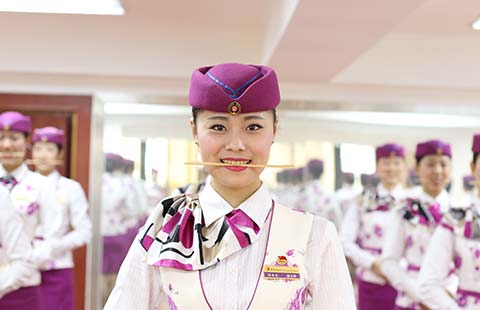China, Russia and the US always intertwined: panel
Updated: 2015-10-10 03:20
By DONG LESHUO in Baltimore(China Daily USA)
|
||||||||
 |
|
W. Fontaine Bell (right), chairman of Baltimore-Xiamen Sister City Committee, and Robert Daly (second from right), director of the Kissinger Institute on China and the United States at the Woodrow Wilson International Center for Scholars, speak at The 2015 China Town Hall meeting hosted in Baltimore, Maryland on Monday. Dong Leshuo/ China Daily |
China’s partnership with Russia is important, but it does not occupy the intellectual energy of the Chinese the way the US does, according an international relations expert.
Though China and Russia have been working closely together on some of the most important issues in international relations, Robert Daly, director of the Kissinger Institute on China and the United States at the Woodrow Wilson International Center for Scholars, said it’s the US that China focuses on.
Russia is “really not where China looks for its examples. When China compares itself in terms of the real progress it has been making, it compares itself to the US, not to Russia”, Daly said.
Daly spoke at The 2015 China Town Hall hosted by The Baltimore-Xiamen Sister City Committee at Baltimore City Hall on Monday.
“Putin is widely admired. Russia as a culture and country, not so much,” Daly said.
“There is a geostrategic competition, the key and trick is to make it sustainable, and you do that by exercising your strings,” Daly said. “It is extremely dangerous for either China, Russia or America to seek total victory.”
“From the very beginning of our relationship with China, there has always been a third player,” W. Fontaine Bell, chairman of Baltimore-Xiamen Sister City Committee, told China Daily.
“In the 1970s, it was the Soviet Union,” Bell said. “The relationship between those countries was very different at that time. Today, we see the same three countries occupying the issues of great importance of international relations.”
According to Daly, Chinese President Xi Jinping wants to move the partnership with Russia forward. But it is not a relationship of alliance. “China has no allies, China has a deep commitment of non-alliance,” Daly said.
The Non-Aligned Movement, founded in Belgrade in 1961, is a group of states that are not formally aligned with or against any major power bloc. China has remained non-aligned since the Cold War.
In November 2014, Xi suggested that China should make friends extensively under the principle of non-alliance and establish a partnership network around the world.
The partnership between China and Russia comes from the commonalities shared by the two countries, Daly said.
“Both China and Russia are civilization states in the way that the US is not,” he said.
“Both China and Russia are all extremely proud of their history.”
He also said that both countries have a strong sense of grievance.
“This is something that brought them together,” Daly said.
In 2011 and 2012, China and Russia cast three vetoes on the United Nations Security Council against UN intervention in Syria.
In 2014, China and Russia vetoed a Security Council resolution that would have referred the situation in Syria to the International Criminal Court (ICC).
Recently, Chinese Foreign Minister Wang Yi called for a new peace conference on Syria, urging Security Council nations to “unite and seek the opportunity to politically solve the Syrian crisis as the parties are showing more willingness to do so”.
In an article published in The Diplomat on Sept 22, Daly argued (before Xi’s US visit) that the goal of Xi and US President Barack Obama should be “to set an inevitable competition on a sustainable course”.
“Sustainable strategic competition legitimizes both nations’ efforts to maximize their interests within the framework of international law. But it also requires that neither seek final victory, as the pursuit of that goal would have catastrophic results,” Daly wrote.
“I think we could assume China continues to rise and change,” Daly said.
“As a result of President Nixon’s trip to China, we’ve enjoyed, almost 40 years now, peaceful work with China,” Bell said. “I’m hoping in this new environment, maybe all the three countries can work together peacefully for the benefit of our whole world.”
leshuodong@chinadailyusa.com

 One killed in Northern Arizona University shooting
One killed in Northern Arizona University shooting
 Students join outdoor courses in countryside
Students join outdoor courses in countryside
 Stewardesses trained to show sweet smile
Stewardesses trained to show sweet smile
 Tourist attractions receive30 million visitors during Golden Week
Tourist attractions receive30 million visitors during Golden Week
 Top 10 most competitive economies
Top 10 most competitive economies
 Cold wave sweeps through China
Cold wave sweeps through China
 Taking a peek
Taking a peek
 News you don't wanna miss over the National Day holiday
News you don't wanna miss over the National Day holiday
Most Viewed
Editor's Picks

|

|

|

|

|

|
Today's Top News
Tu first Chinese to win Nobel Prize in Medicine
Huntsman says Sino-US relationship needs common goals
Xi pledges $2 billion to help developing countries
Young people from US look forward to Xi's state visit: Survey
US to accept more refugees than planned
Li calls on State-owned firms to tap more global markets
Apple's iOS App Store suffers first major attack
Japan enacts new security laws to overturn postwar pacifism
US Weekly

|

|







